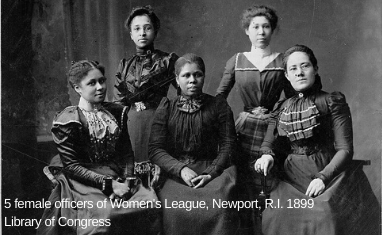Tue, 02/25/2020 - 12:04pm

As Black History Month draws to a close, we wanted to share recommendations for a few of the African-American history resources available online.
Last year was the 100th anniversary of the official end of World War I. The National Museum of African-American History and Culture marked the occasion with an exhibit on African-Americans in World War I, “We Return Fighting,” that will run through June 14, 2020. View the online version of the exhibit here.
The Library of Congress has an online collection of African-American photographs that were displayed at the 1900 Paris Exhibition, such as the photo at the top of this post. The photos range from individual portraits and pictures of black-owned businesses to men at work in a tobacco factory and classes in session at Howard University.

While the end of the Civil War brought emancipation and citizenship for African-Americans, former slaveowners ultimately implemented a legal and social system that relegated African-Americans to second-class status. A PBS series about how this system began and ended, The Rise and Fall of Jim Crow, is the first comprehensive look at race relations in America between the Civil War and the Civil Rights Movement. Log in to Kanopy with your library card to watch an episode or view the whole series.
During the Depression, WPA employees interviewed former slaves to collect first-hand accounts of slavery. But how trustworthy are these recollections? Slate writer Rebecca Onion reflects.

Discussions of African-American music tend to focus on jazz, blues, rap and hip-hop, which is fine but slightly limiting: the African-American canon includes some brilliant classical composers. One of them, Florence Price (1887-1953), was the first African-American woman recognized as a symphonic composer. The Chicago Symphony Orchestra premiered her Symphony in E Minor in 1933. You can listen to it here.

If you’re looking for a good book, check out USA Today’s list of recommended titles for Black History Month. You can’t go wrong with any of these books, but the most timely is Ibram X Kendi’s How to Be an Antiracist, a memoir and societal critique that begins with a premise and a question: we’re all racist, whatever the color of our skin; so how do we stop being racist?
Happy viewing, listening and reading.


Add new comment